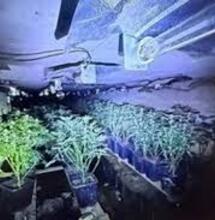Relaxation of US cannabis laws 'violates UN drug conventions'

International Narcotics Control Board criticises decision by some US states to legalise use of cannabis
International Narcotics Control Board criticises decision by some US states to legalise use of cannabis
Cannabis decriminalisation measures across the United States, including the medical use of marijuana in California, have been sharply criticised by the United Nations, which has warned Washington they violate the international drug conventions.
The International Narcotics Control Board (INCB), which polices the drug treaties, has also warned about the growing public health threat from the "unprecedented surge" in "legal highs" and called for concerted global action to curb the growing trade.
Launching its annual report in London, Raymond Yans, the INCB president, said that the successful ballots in Colorado and Washington to legalise the use of cannabis for recreational purposes and the fact that Massachusetts had recently become the 18th state to allow the use of cannabis for medicinal purposes violate the international drug conventions.
"They also undermine the humanitarian aims of the drug control system and are a threat to public health and wellbeing," said Yans. He claimed that so-called "medicinal use" initiatives were little more than "a back-door to legalisation for recreational use".
The INCB has warned the US government that medical cannabis must be properly regulated. "In some US states they are being operated in a way that is completely inappropriate and outside of the conventions," the report says.
Yans said the INCB had already been reassured by the US attorney-general that federal laws banning the cultivation and possession of cannabis would remain in force. The UN drug authorities are now waiting to see how Colorado and Washington implement their votes to legalise recreational use and what response is taken by the federal authorities.
The INCB's annual report also warns of the "unprecedented surge" in the growth of legal highs - new psychoactive drugs that have been largely synthesised by chemists in south-east Asia and are not subject to international controls.
Yans said legal highs were now multiplying at an alarming rate, with more than one a week appearing on the market - almost 10 times the number that were being marketed a decade ago. Many so-called designer drugs attempt to imitate the effects of illicit drugs such as cannabis, ecstasy and cocaine.
"The total number of such substances on the market has been estimated to be in the order of thousands, posing a significant challenge to public health systems in preventing and dealing with their abuse," says the UN drugs annual report.
Yans said that Britain, which has introduced a system of temporary banning orders on new legal highs as soon as they appear, was in the frontline of the drive against these new psychoactive substances because the market developed in the UK first through online head shops and pharmacies and then to the US and Australia.
Governments will meet in Vienna next week at the UN commission on narcotic drugs to discuss the first global co-ordinated response to the rise in legal highs. The problem is proving international with Japan already banning 53 new substances and South Africa, Nigeria, Brazil, Argentina and the United States all voicing concern.
The INCB president said that some countries had adopted early warning systems, others had tightened controls on retailers, removed them from circulation using food and medicine safety regulations or adopted emergency or temporary control measures.
But Yans warned this piecemeal approach could undermine efforts to curb the surge in legal highs: "It is difficult to see a real global response to this challenge if different states take different measures to control different substances especially in the European Union where it is a single market and so easy to cross borders. This is one of the most pertinent questions in Vienna next week."
http://www.guardian.co.uk/ 5/3/2013



